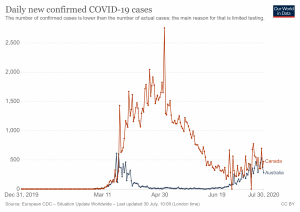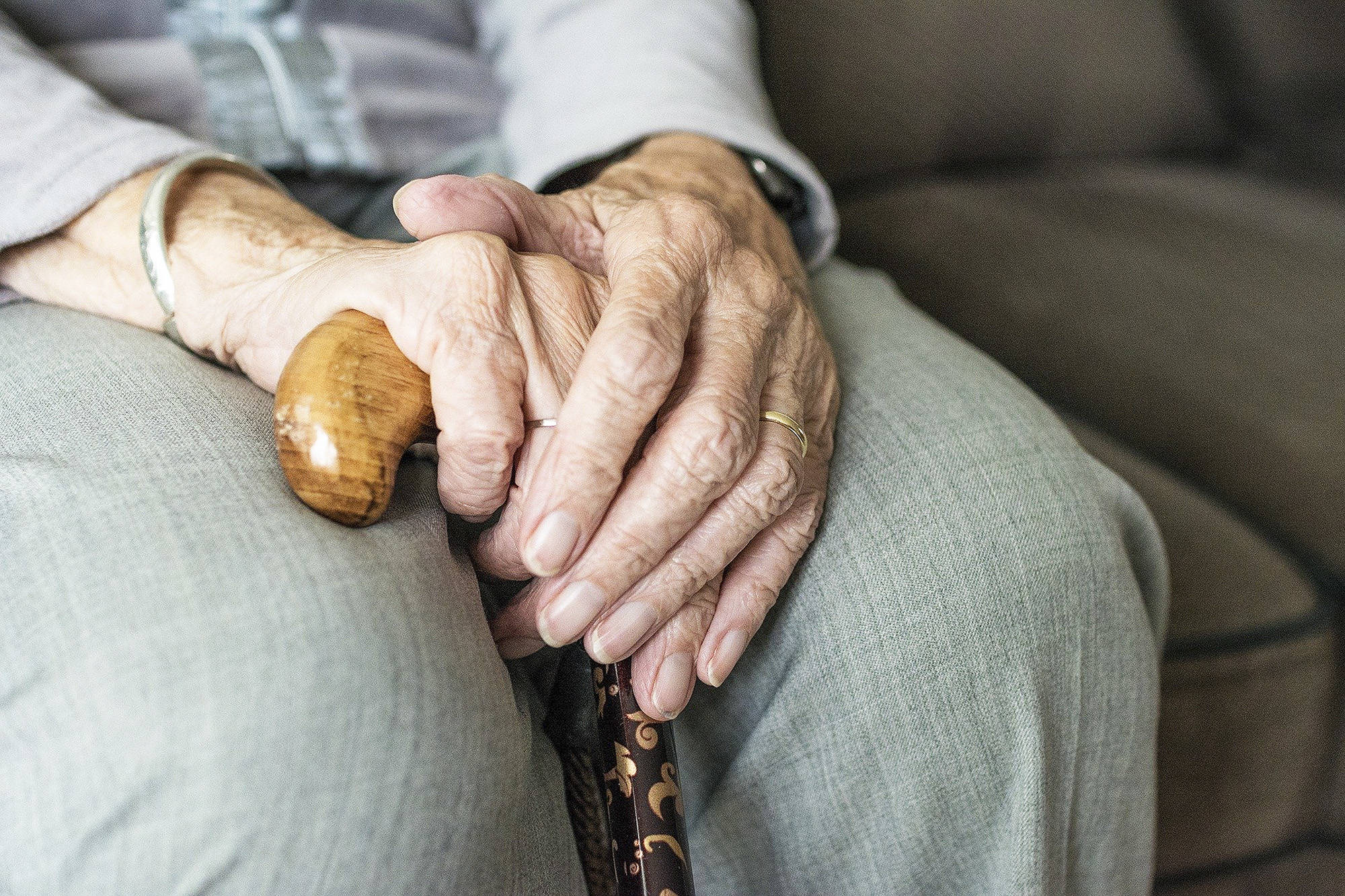To date, most countries across the world have been affected to some degree by the COVID-19 pandemic. Along with workers, particularly hard hit are seniors — including those living in long term care where most seniors are already increasingly frail and often suffering from multiple chronic conditions. To protect such vulnerable populations jurisdictions in Canada (including BC) and internationally have taken various approaches to prevent and reduce the spread of COVID-19, including increased use of personal protective equipment (PPE) and by limiting those who can visit or even work at seniors care homes.
This September 21st-25th, the BCCPA virtual conference will invite experts from Canada, Australia and the United States to discuss “What Set BC Apart?” The long-term care sector in Canada and abroad has been particularly hard hit by the novel coronavirus, accounting in some countries for the majority of COVID-19 related fatalities. In late June, the Canadian Institute for Health Information (CIHI) issued a report showing that long term care residents made up 81 per cent of all reported COVID-19 fatalities in Canada, in contrast to an average of 42 per cent among all other countries studied[I] — including approximately 30 per cent for both United States and Australia.[ii] Dr. Samir Sinha, Director of Geriatrics, Sinai Health System and University Health Network and as part of the webinar Seniors Care and the COVID-19 Pandemic: How the International Community Has Responded will discuss some of the challenges Canada has faced in dealing with COVID-19, particularly as it relates to seniors care and as part of the international context.

As of mid-June 2020, Australia had only four deaths per million residents compared to more than 212 in Canada. By contrast, deaths in Canadian long-term care homes accounted for over 5000 lives lost compared to under 30 according to Australian public health data.[iii] Associate Professor in Aging and Health at the University of Sydney, Lee Fay Low, will discuss Australia’s initial success while also highlighting the existing challenges it currently deals with as part of a second wave. While it was seeing very low numbers, by late July Australia had more than 3,000 active cases and daily new case numbers were almost as high as the UK – with less than a third of the population.[iv] As as of July 30th the Australian state of Victoria – which has been particularly hit – had 952 active cases linked to aged care, including workers across 87 facilities with active outbreaks.[v] On the same day, the state reported a record 723 new cases including 13 deaths, mostly among vulnerable residents of aged care homes.[vi]
While the United States (US) has a lower percentage of deaths in long term care, its total numbers are significantly larger. While positive COVID-19 infection rates continue to rise rapidly amongst the community, coronavirus cases in the U.S. long-term care sector also continue to spike. For example, over a 14-day period that ended on July 10th, such cases increased by 11% in long-term care facilities across 35 states where data was available. The two states with the highest overall increase in cases statewide – Texas and Florida – also reported the highest increase in cases in long-term care, with both states reporting an increase of approximately 50% cases between June 24th and July 9th or nearly a doubling of total cases.[vii]
Dr. David Grabowski, Professor of Health Care Policy at the Harvard Medical School and a member of a recently formed federal Coronavirus Commission for Safety and Quality in Nursing Homes[viii], will highlight some of the challenges experienced in the U.S. such as lack of a national strategy and inadequate access to personal protective equipment (PPE). Dr. Grabowski will also discuss how states who have done a better job — such as Minnesota, which after announcing a five-point strategy earlier this year[ix], saw a significant reduction in number of deaths in long term care settings.[x]
Along with exploring the challenges senior care operators have faced in dealing with COVID-19 in Canada, this discussion will look at international jurisdictions that have successfully minimized the impacts of COVID-19 in continuing care. Australia, as well as South Korea, Hong Kong or Taiwan have learned from their experiences during the SARS outbreak.
This dynamic webinar will also explore how the COVID-19 pandemic has escalated within long-term care, and what can be done now and going forward. Similarly, along with discussing some of the challenges and successes related to COVID-19, the webinar will forecast what the future for seniors living and seniors care will look like is as we continue deal with future pandemics. The discussion will include how countries through organizations like the World Health Organization can work together to defend against future waves of the coronavirus pandemic.
BCCPA Annual Conference
Compelling and innovative leaders from all corners of the globe lead our series of keynotes, panel discussions, and webinars at our virtual conference COVID-19: What Set B.C. Apart. We are pleased to offer delegates various ticket options with single day passes ($99) and five day passes ($399) with group discounts available. Sessions can be viewed ‘live’ or ‘on-demand.’
Panel: Seniors Care and the COVID-19 Pandemic: How the International Community Has Responded
September 21, 2020
11:00 am – 12:00 pm PDT
NOTE: If you had registered for the cancelled Whistler conference please contact cora@bccare.ca to process a refund. You must complete a separate registration to participate in the virtual event.
END NOTES
[i] Canadian Institute for Health Information. Pandemic Experience in the Long-Term Care Sector How Does Canada Compare With Other Countries? June 2020. Accessed at: https://www.cihi.ca/sites/default/files/document/covid-19-rapid-response-long-term-care-snapshot-en.pdf
[ii] Royal Society of Canada. Restoring Trust: COVID-19 and The Future of Long-Term Care. June 2020. Accessed at: https://rsc-src.ca/sites/default/files/LTC%20PB%20%2B%20ES_EN.pdf
[iii] CBC News. Australia’s COVID-19 successes shine a light on Canada’s troubled long-term care sector. June 13, 2020. Accessed at: https://www.cbc.ca/news/world/australia-covid-19-long-term-care-1.5591912
[iv] UK Guardian. ‘A wicked enemy’: how Australia’s coronavirus success story unraveled. July 24, 2020. Accessed at: https://www.theguardian.com/australia-news/2020/jul/24/a-wicked-enemy-how-australias-coronavirus-success-story-unravelled
[v] Aged Care Insite. Paid pandemic leave announced: union says it won’t reach all workers. July 30, 2020. Accessed at:
[vi] CTV News. Australian state makes masks compulsory as COVID-19 spreads. July 30, 2020. Accessed at: https://www.ctvnews.ca/world/australian-state-makes-masks-compulsory-as-covid-19-spreads-1.5044961
[vii] Kaiser Family Foundation. Rising Cases in Long-term Care Facilities Are Cause for Concern. July 21, 2020. Accessed at: https://www.kff.org/coronavirus-covid-19/issue-brief/rising-cases-in-long-term-care-facilities-are-cause-for-concern/
[viii] McKnight’s Long Term Care News. New federal nursing home commission members named. June 19, 2020. Accessed at: https://www.mcknights.com/news/breaking-new-federal-nursing-home-commission-members-named/
[ix] Minnesota’s Five-Point Battle Plan to Protect our Most Vulnerable. Jan Malcolm, Minnesota Commissioner of Health. May 7, 2020. Accessed at: https://www.health.state.mn.us/diseases/coronavirus/hcp/ltcplan.pdf
[x] Star Tribune. Deaths in Minnesota long-term care drop tenfold. July 21, 2020. Accessed at:
Feature image: Reuters





